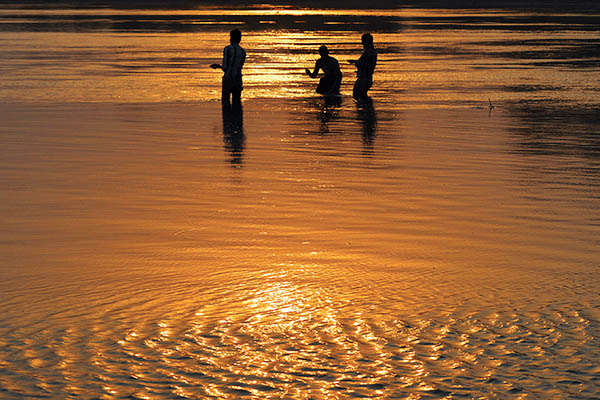
File photo. Arif Ali—AFP
117th meeting of India-Pakistan Permanent Indus Commission concludes after discussions on entire spectrum of water-related issues
Pakistan and India on Thursday reiterated their commitment to implement the Indus Waters Treaty in “its true spirit,” according to a statement issued by the Foreign Office after the conclusion of the 117th meeting of the India-Pakistan Permanent Indus Commission.
Held in Islamabad from March 1-3, the meeting’s venue alternates between Pakistan and India annually under the relevant provisions of the Indus Waters Treaty 1960. According to the Foreign Office, the Indian delegation comprised 10 members and was headed by Indian Commissioner for Indus Waters P.K. Saxena, while Pakistan’s delegation was led by Indus Waters Commissioner Syed Muhammad Mehar Ali Shah.
“The entire gamut of water-related issues between Pakistan and India were discussed in the meeting,” read the statement. “Pakistan reiterated its observations on the Kiru Hydroelectric project (HEP) located upstream river Chenab and India’s new run-of-the-river small HEPs on Western rivers,” it said. “Response to Pakistan’s objections to Indian projects, including Pakal Dul and Lower Kalnai, was also sought,” it added.
According to the statement, the Pakistani side also urged India to communicate advance flood-flow information as per the provisions of the Treaty, noting the practice had continued from 1989 till 2018, when it had come to a halt due to fraying ties between the neighboring nations. It said both sides hoped the next meeting of the Commission would be held at “an early date” in India.
According to local media, Islamabad conveyed to the Indian side its concerns with the Pakal Dal Hydropower project on the Chenab River, noting the Pakistan commissioner had voiced intent to invoke Article 9 of the treaty to settle the dispute through international arbitration. Delhi responded by saying it was too early to invoke Article 9, noting discussions on it had not yet reached a stage that could be taken to an international forum.
For Lower Kalnai, the Indian side reported that 2014 floods had damaged the project and work on it was unlikely to resumed in the near future. Per daily Dawn, the Pakistani side asked India to convey any advance information about the resumption of works as required under the treaty, which was agreed upon by Delhi.
